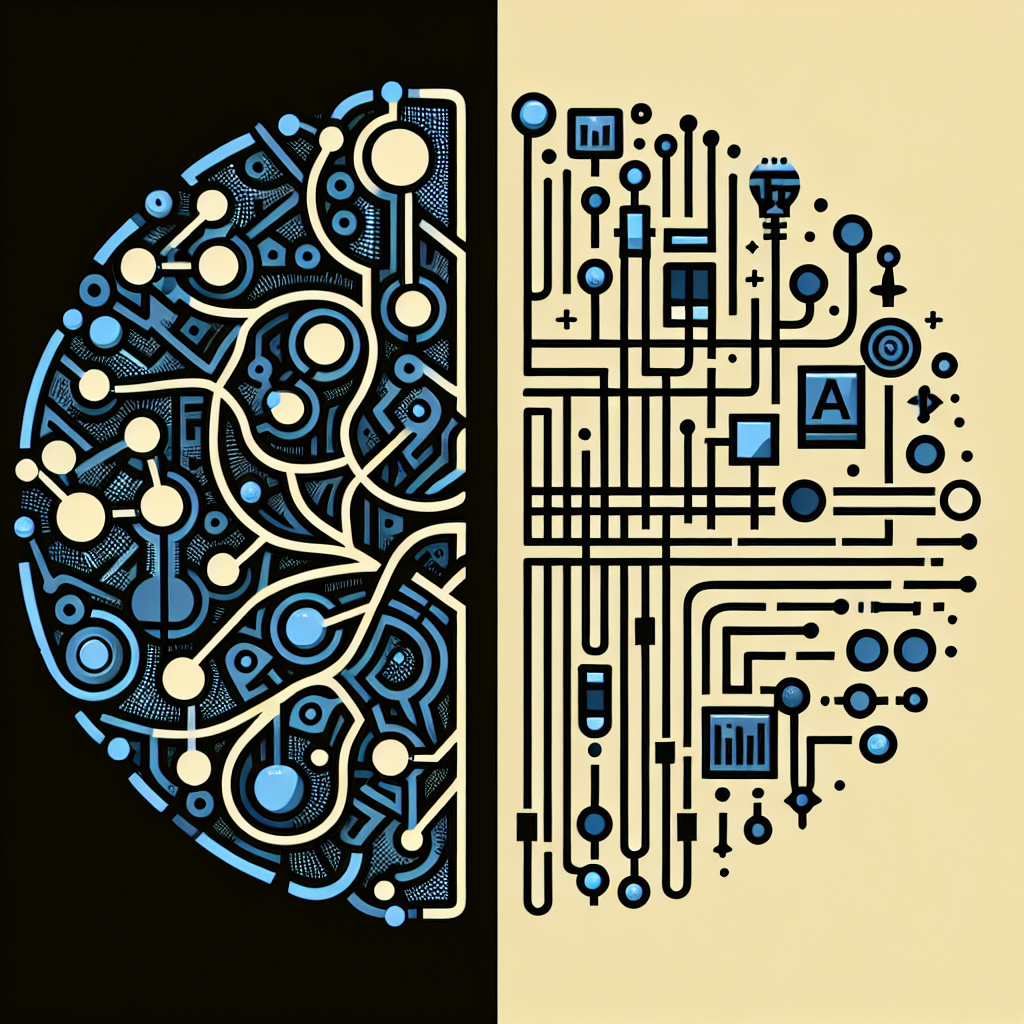Artificial Intelligence (AI) and Machine Learning (ML) are two closely related technologies that are revolutionizing the way we interact with machines and the world around us. While the terms are often used interchangeably, there are some key differences between them that are important to understand when considering which is more adaptive.
AI is a broad field of computer science that encompasses a wide range of technologies that aim to mimic human intelligence. These technologies include natural language processing, computer vision, robotics, and more. AI systems are designed to perform tasks that typically require human intelligence, such as decision-making, problem-solving, and learning.
Machine Learning, on the other hand, is a subset of AI that focuses on the development of algorithms that allow computers to learn from and make predictions or decisions based on data. In other words, Machine Learning is a method for achieving AI.
One of the key differences between AI and Machine Learning is adaptability. While AI systems are often designed to perform specific tasks, Machine Learning algorithms have the ability to adapt and improve over time based on the data they receive. This adaptability is what sets Machine Learning apart from traditional AI systems and makes it more suited to tasks that require learning and evolution.
In the debate between AI vs Machine Learning, the question of which is more adaptive ultimately comes down to the specific task at hand. In some cases, AI systems may be more appropriate for tasks that require specific, predefined rules and logic. For example, AI systems are often used in robotics for tasks such as factory automation, where the tasks are well-defined and do not require learning or adaptation.
On the other hand, Machine Learning algorithms are better suited for tasks that require learning and adaptation based on data. For example, Machine Learning algorithms are used in applications such as recommendation systems, natural language processing, and computer vision, where the ability to learn and adapt to new data is crucial for performance.
In general, Machine Learning is more adaptive than traditional AI systems because it has the ability to learn and improve over time based on the data it receives. This adaptability allows Machine Learning algorithms to perform well in a wide range of tasks and to adapt to changing conditions and requirements.
One of the key advantages of Machine Learning over traditional AI systems is its ability to adapt to new data and to improve its performance over time. This adaptability is crucial in applications such as natural language processing, where the language used by users may change over time, or in computer vision, where the appearance of objects in images may vary.
In contrast, traditional AI systems are often static and do not have the ability to adapt to new data or changing conditions. This makes them less suited for tasks that require learning and evolution, such as those that require the ability to recognize patterns in data or make predictions based on new information.
In conclusion, while both AI and Machine Learning have their strengths and weaknesses, Machine Learning is generally more adaptive than traditional AI systems. Machine Learning algorithms have the ability to learn and improve over time based on data, making them suited for tasks that require learning and adaptation. In contrast, traditional AI systems are often static and do not have the ability to adapt to new data or changing conditions.
FAQs:
Q: What is the difference between AI and Machine Learning?
A: AI is a broad field of computer science that encompasses a wide range of technologies that aim to mimic human intelligence, while Machine Learning is a subset of AI that focuses on the development of algorithms that allow computers to learn from and make predictions or decisions based on data.
Q: Which is more adaptive, AI or Machine Learning?
A: Machine Learning is generally more adaptive than traditional AI systems because it has the ability to learn and improve over time based on the data it receives.
Q: In what applications is Machine Learning better suited than AI?
A: Machine Learning is better suited for tasks that require learning and adaptation based on data, such as recommendation systems, natural language processing, and computer vision.
Q: Can AI systems be adapted to be more like Machine Learning?
A: While AI systems can be designed to incorporate Machine Learning algorithms, traditional AI systems are generally less adaptive than Machine Learning algorithms.
Q: What are some examples of adaptive AI systems?
A: Some examples of adaptive AI systems include chatbots that learn from user interactions, recommendation systems that improve over time based on user feedback, and autonomous vehicles that adapt to changing road conditions.

